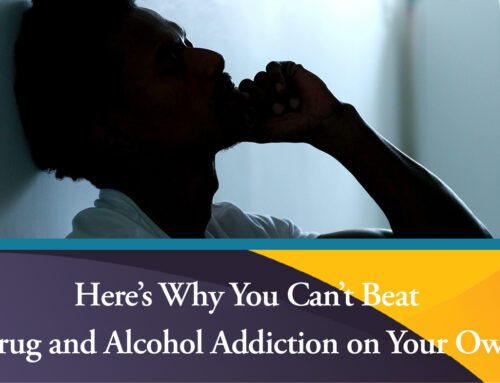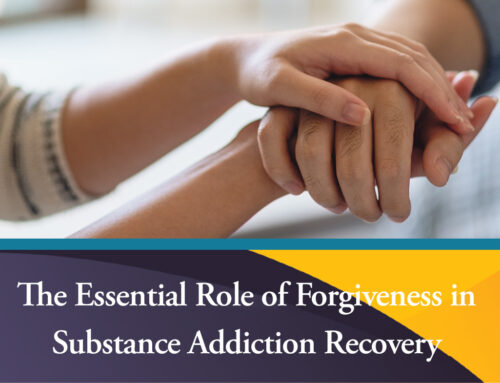If you or someone you know struggles with substance addiction, you may have noticed a change in behavior and personality. Learn about how substances can change a person’s personality, and how to get help.
Can Substance Addiction Change Someone’s Personality?
In short – yes. To go more in-depth, addiction can change a person’s behavior and personality in ways that make them seem like a stranger. Research shows that substance abuse can completely alter brain structure by affecting its reward circuitry in the prefrontal cortex.
When we experience a healthy, pleasurable experience, our brain activates the reward circuitry. This sends dopamine signals that this experience or activity is something to be remembered. The dopamine signal causes changes in neurons, making it easier to repeat the activity without thinking about it. The issue is substances like drugs and alcohol can cause euphoria, resulting in more significant dopamine surges, reinforcing the connection between consuming substances and pleasure. This huge dopamine surge teaches the brain to seek substances more than healthier activities because it feels better, resulting in behavioral changes.
Ways it Can Change
These changes affect your mood, your ability to think, and even your personality. Here are six ways substance addiction can change a person’s personality.
Increased Secrecy
Someone with substance abuse issues often becomes very secretive and protective of their privacy. They may talk less and be wary of others trying to get information out of them. Spending more time alone is a way for them to avoid divulging information about where they’ve been and what they’ve been doing.
There are a few reasons for increased secrecy. One is they are aware their friend and family wouldn’t approve of their drinking and drug use. This can make the person with substance addiction aware on some level that they have a problem. Another reason is they may be using illicit substances or illegally obtaining controlled substances. They may be concerned about getting into legal trouble or getting others in trouble.
Paranoia
Paranoia is another common symptom. Many substances have mind-altering chemicals that produce this effect, such as marijuana, methamphetamine, ecstasy, and cocaine, among others. If you or someone you know is struggling with substance use, look for these signs of paranoia:
- Hypersensitivity when it comes to comments, like taking innocent comments and looks as criticism or attacks
- Reacting with anger to any perceived attacks on their character
- Acting hostile, stubborn, and argumentative
- Assuming others are lying to them
- Irrational fear of pursuit or endangerment
Increased Depression or Anxiety
Substance addiction can often cause or worsen depression, anxiety, or both. Depression and anxiety are common co-occurring conditions with substance use disorders. They often are diagnosed before substance abuse, but studies have found they can be a result of it as well.
Substance use changes the brain’s chemistry, often leading to rebound effects and poor emotional regulation. For example, alcohol can temporarily reduce symptoms of depression and anxiety. But when blood alcohol levels start to drop, symptoms come back even worse than before. Being afraid of withdrawal can also make you anxious, and wanting to quit but not being able to can cause a constant feeling of hopelessness that can lead to depression.
Lack of Interest in Activities
One of the most common ways someone can change is that substance use becomes the top priority. That means everything else gets bumped down, including friends, family, work, and other interests. This can be a huge change to someone’s identity because our identity is made up of our interests, hobbies, and what we do for fun. This can have a significant fact on who someone is as a person and their quality of life.
Becoming Emotionally Volatile
Substance use also leads to emotional volatility. Substances throw the brain out of balance, meaning the person is getting big hits of dopamine or relief from anxiety. And then when the substances leave the body, they feel let down, and the brain tries to overcorrect. As a result of all this, someone who is addicted to substances may suffer from mood swings. These swings are often more dramatic than what you would normally experience.
Brain imaging studies have suggested long-term substance use shrinks areas of the prefrontal cortex, the areas responsible for planning, attention, self-control, and emotional regulation. As a result, there’s a reduced ability to regulate emotions, making an addict more vulnerable to emotional swings.
Risk-Taking
Addiction often leads to risky or unethical behavior. As noted above, studies have found that prolonged use shrinks the prefrontal cortex, so while it makes a person vulnerable to mood swings, it also affects their foresight, so they’re less able to foresee the negative consequences of their actions. And since substances are a top priority, good foresight and planning simply mean getting drugs or alcohol more efficiently. Since other considerations matter less, they may be indifferent to the ethical considerations involved, even perhaps stealing from loved ones so they can buy drugs. What’s more, many drugs lower inhibitions and make someone more willing to engage in risky behaviors, like sharing needles and unprotected sex.
Calvary Ranch Colorado is Here to Help You with Your Addiction
Addiction can cause significant personality changes, affecting emotions, cognitive function, behavior, and social functioning. Seeking recovery can help individuals address these changes and work towards a healthier, happier life. Let us help you or your loved one get their life back.
Our Rehab Ranch in Montrose, CO, is a simple place with a simple program. Calvary Ranch Colorado is located on a working cattle ranch surrounded by rivers, lakes, trees, and majestic mountain views. Abundant wildlife also shows God’s creation and adds to the tranquility of this place. Check out our What to Expect information to learn more.
If you would like to talk through any of your concerns or questions about how we can help, contact us.






